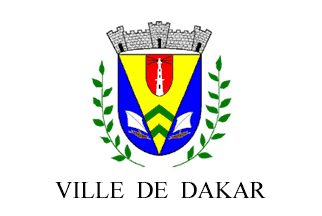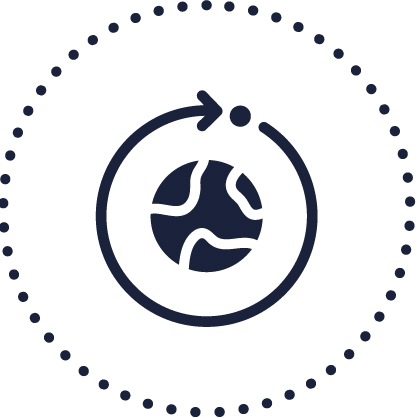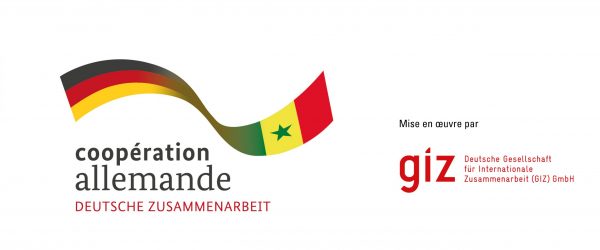Hydraulic, Landscaping, and Urban Development of the Retention Basin of Rainwater, and of the Abstraction Zone, and its surroundings.
The purpose of this project is to develop the water retention basin of the abstraction area, and its surroundings in order to optimize its hydraulic functioning and its integration into the local urban fabric.

Overview of the project
Flooding is one of the main challenges facing the City of Dakar in terms of vulnerability to climate change, and has been identified as an emergency factor. This vulnerability of peripheral neighbourhoods can only increase with climate change, and the increased frequency of regular rainy periods.
Consequently, the Government of Senegal has made flood control one of its priorities. This is reflected in the Plan Sénégal Émergent (PSE,) and operationally defined in the Ten-Year Flood Control Program adopted in 2012. The World Bank currently estimates that the value of economic assets vulnerable to flooding in the Dakar region amounts to 40 billion Euros. In 2006, the Minister of Prevention and Public Hygiene launched a major project to modernize the Grand-Yoff sewerage system. Within this framework, the retention basin of the Zone de Captage was built to capture rainwater from the Grand Yoff catchment area and to limit the risks of flooding in case of heavy rain.
In addition, the high rate of urbanization in Dakar is also having a devastating effect on a number of aspects, including the quality of health services, the economy, the environment, and livelihoods.
The area known as the “Zone de Captage” (Abstraction Zone) is the outlet of a large watershed to which stormwater from several neighbourhoods in Dakar is pumped into Hann Bay.
The basin has a size of 7.70 ha, an average depth of nearly 2 m and a storage volume of 120 to 160,000 m3. The CFF (C40 and GIZ) is supporting the City of Dakar in this project of hydraulic and landscape redevelopment of the stormwater retention basin. Currently, the basin is facing a number of difficulties exacerbated by the pressures of urbanization and population growth. For example, it is overgrown with:
- Aquatic plants
- Blackish stagnant water
- Dumping of various types of garbage
- Solid waste discharges
- Sewage discharges are connected to and carried to the pond by the storm drains
All of these actions have created an accumulation of water in the basin that is not only a nuisance to the residents, but also a source of disturbance, pollution and contamination to the surrounding neighbourhoods. As a result, the basin has lost its primary function (stormwater management) over time.
The project aims not only to redevelop the basin and make it functional, thereby improving flood resilience in the area and the city but also to achieve a number of associated socio-economic benefits, including reduced health risks and overall improvement of the surrounding urban space.
The main objective of CFF’s support to the City of Dakar will be to lead this project towards implementation in partnership with the Office National de l’Assainissement du Sénégal (ONAS).
The main components of the project are:
- The elimination of direct wastewater discharges: connection to the network, bringing polluting riparian activities up to standard or evacuation, creation of a plant purification system with reuse of treated water for watering riparian trees and gardening activities in the basin
- The reinforcement of the capacity of the basin (management of a ten-year rainfall) by upstream relieve (towards the niayes), deepening and creation of several floodable levels gradually in the basin
- Convergent actions better waste management
- Urban development of the surroundings (economic and cultural activities, traffic optimization, walking and family activities)
Currently, the preliminary studies (topographic, geotechnical and feasibility) are carried out. The next steps to be taken are:
- The detailed design study
- The environmental and social impact study
- The continuation of the consultation and land procedures
- The coordination of the contracting authorities and agreement
- The launching of the works contracts
The project is estimated at the sum of Seven Billion Three Hundred Million CFA Francs (7.300.000.000 FCFA)
Develop the water retention basin of the abstraction area, and its surroundings in order to optimize its hydraulic functioning and its integration into the local urban fabric.
Ongoing research
01/01/2020 - project still in progress
Since its start in January 2020, the following quantitative results have been obtained:
- The topographic studies allowed to specify the exact characteristics of the basin: surface, permanent water level, total depth, useful depth, the height of the raising wall surrounding the basin
- The geotechnical studies, which are focused on: the preliminary study of the site; the follow-up and the analysis of the investigations; the synthesis of the geological and geomechanical context of the site and the analysis of its influence on the project; the geotechnical hypotheses for the justification of the geotechnical works, and the principles of adaptation to the site; the geotechnical dimensional draft of the elements of foundation and the approach of the Zone of Geotechnical Influence (ZIG)
- The main feasibility studies are based on: the elimination of wastewater inflows to the retention basin or their alternative management; the improvement of waste management; the optimization of the management of important rain events by the retention basin / Front de Terre canal system and of the induced floods on the district; the urban and landscape integration of the basin and its surroundings and proposals in terms of management and financing schemes
The qualitative achievements of the project are :
- The establishment of a steering committee at the institutional level, which is responsible for defining and arbitrating the political and strategic orientations of the project. It is composed of local elected officials (City of Dakar and Commune of Grand Yoff), the Ministries concerned (urban planning; environment; water and sanitation) and technical and financial partners (GIZ, CFF, C40 Cities)
- The setting up of the Technical Committee, in charge of monitoring the progress of the project, validating technical choices and preparing the steering committees. It is composed of: executives and experts, technical directors of the City of Dakar and the Commune of Grand Yoff, directors of State services and its agencies, ONAS, as well as committees representing users and residents
- Capacity building for members of the technical committee on urban management; water and sanitation; collaboration and inter-directional relations. This training was provided to committee members
- Involvement of local residents: the populations are involved from the design stage and will be involved until the completion of the project. They are represented on the technical committee by the basic community organizations (neighbourhood delegate, president of the neighbourhood council, sports and cultural associations, etc.)
- The sensitization of the economic actors: the various actors who are active around the basin (dyers; transporters; mechanics; the administration of the General Hospital of Grand Yoff and the representatives of the pig slaughterhouse)
- The project was selected for the World Water Forum to be held in Dakar in 2021
- Contacting donors to finance the project such as the African Development Bank; the French Development Agency; the European Investment Bank; the World Bank; the West African Development Bank
The City of Dakar had conducted a diagnostic report on the catchment area in 2014. The latter was retained and financed by the CFF (C40 Cities and GIZ) following their call for applications to finance all the complementary and necessary studies for the realization of the said project.
organisation
Dakar, called in Wolof “Ndakaaru,” is located on the Atlantic coast in the Cape Verde peninsula. It is one of the four (4) historical Communes of Senegal and was at the same time the capital of French West Africa. The city of Dakar was founded in 1857 and established as a commune by the decree of June 17, 1887. It has an area of 87km2 and currently has 1,400,974 inhabitants (ANSD, Senegal population projection report 2013-2063).
It is characterized by a significant social, economic, and cultural divide compared to other urban units in Senegal due to the high population growth and high rate of urbanization. The city of Dakar was divided in 1996 into nineteen (19) Communes d’Arrondissement, themselves grouped into four (4) Arrondissements, which are:
- Dakar Plateau includes five (5) Communes: Gorée, Plateau, Médina, Fass-Colobane -Gueule Tapée and Fann-Point E Amitié
- Grand Dakar includes six (6) Communes: Biscuiterie, Grand Dakar, Sicap Liberté, HLM, Hann Bel Air, and Dieuppeul-Derklé
- Almadies includes four (4) Communes: Yoff, Ouakam, Ngor, Mermoz Sacré-Coeur, and
- Parcelles Assainies includes four (4) Communes: Pattes d’oie, Parcelles Assainies, Cambéréne, and Grand Yoff
With the entry into force of Act 3 of decentralization in 2013, the City of Dakar is a territorial authority, also playing the role of a department with nineteen (19) full-fledged Communes.
Created in April 2011 by Order No. 1795 reorganizing the services of the City of Dakar, the Urban Development Department (DDU) is responsible for undertaking or commissioning all design, study, and control work on the City’s technical projects. It also ensures the planning and management of urban development in the city.
Through different divisions, the DDU is concerned with different specific issues related to:
- Promotion of rational management of urban space
- Architectural project studies
- Basic studies (traffic, circulation, etc.) necessary for road extension and maintenance projects
- Management of the city’s real estate and land assets
- The prevention of natural and industrial risks in collaboration with the auxiliary commission of civil protection
in collaboration
Commune of Grand Yoff
Basic community organizations (Sports and Cultural Associations; neighbourhood council)
Residents










